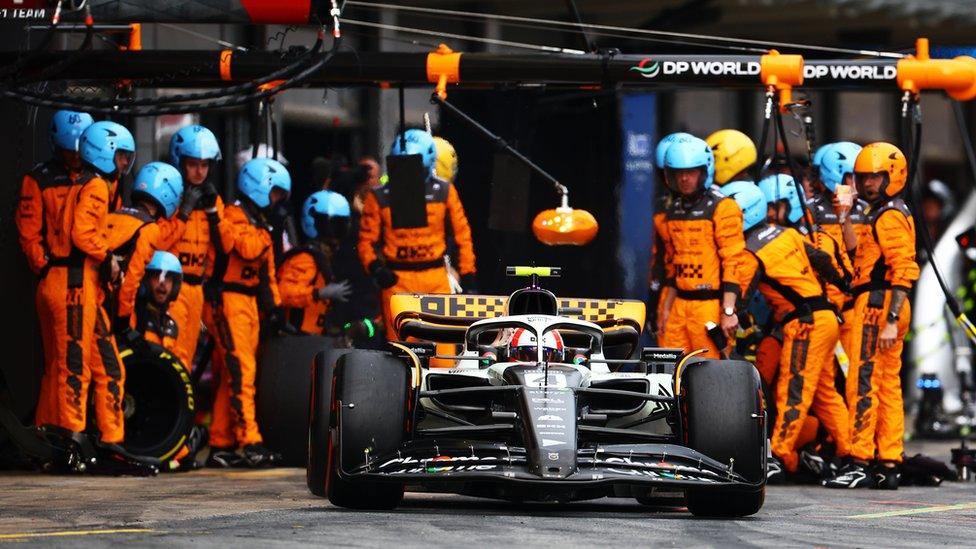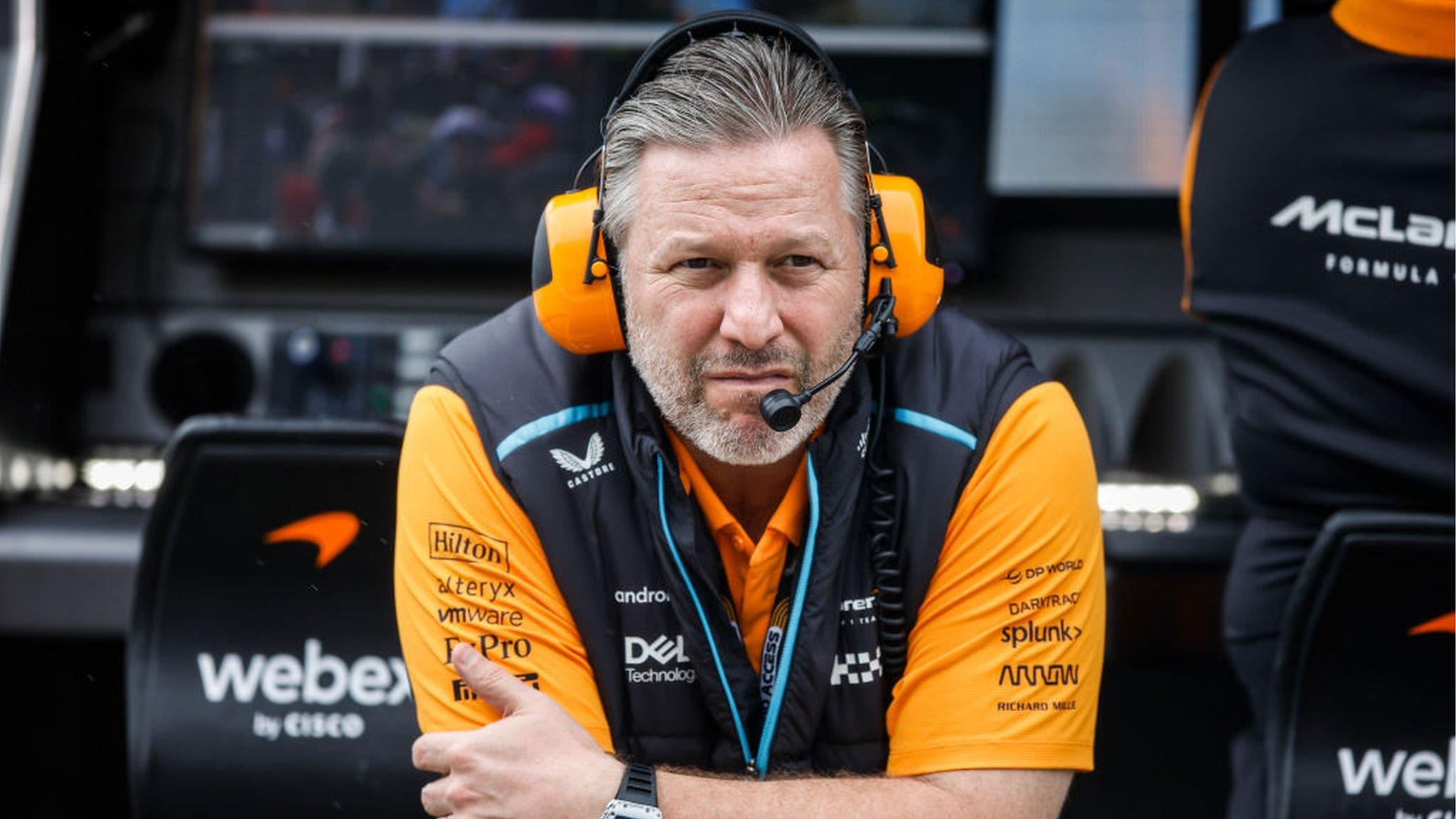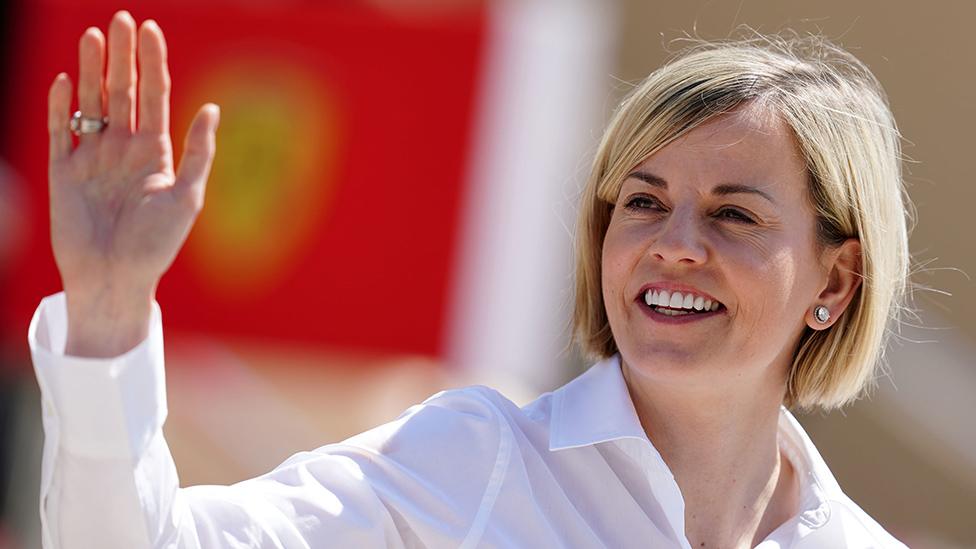British Grand Prix: Lando Norris says F1 trying its best on climate
- Published

Formula 1 drivers like McLaren's Lando Norris have large teams who travel with them
Big engines, high speeds and events all across the world come to mind when you think of Formula 1.
But the sport has a target of being carbon-neutral by 2030 - removing as much carbon dioxide from the environment as it puts into it.
For F1, this includes changes to things such as travel, as well as technological advances like cleaner engines.
Some fans think this will be a tough target to hit without reducing the power and excitement of the races.
So is it realistic? McLaren driver Lando Norris thinks so.
"They are doing as much as they can. Everything really starts with the fuels that we use, that's the big thing.
"I'm not saying it's a good thing, but the actual pollution that comes from us driving the cars that we do is minimal compared to the travel side of things," he tells BBC Newsbeat.
If you add up the distance between each of the circuits on the 2023 calendar you clock up 82,007 miles (131,977 km), according to an online tool.
And that's without factoring in a trip back to the team bases after every race.
F1's head of environment, social and governance Ellen Jones admits that travel logistics are two-thirds of the sport's carbon footprint.
"What is the amount of kit and people who travel? What is the mode it travels by?" she says.
"Is it by plane, by road or by sea? And what is the distance that those people and kit travel?"
She also tells BBC Newsbeat that F1 is trying to to cut emissions by doing some things remotely and reducing journeys.

Lando Norris placed on the podium in Imola, Italy, last April
Lando insists F1 is "not as bad as even the Olympics and other sports" for the environment, but people assume the worst because cars are involved.
But BBC Sport's sustainability expert Dave Lockwood says that comparison isn't very helpful.
"F1 is a sport of 20 guys racing around a track 24 times a year," he says.
"The Olympics is a huge event with hundreds if not thousands of athletes that happens once every four years, whereas obviously F1 is ongoing."
From 2026, teams will have to use carbon-neutral, synthetic fuel in new engines in an effort to cut emissions.
According to Dave, though, many people think electric vehicles are the long-term answer.
"The efficiency of electric vehicles is something like 50% greater than a car operating on sustainable fuels," he says.
"I think some campaigners fear that the message around sustainable fuels could get in the way of the uptake of electric vehicles."
Lando tells Newsbeat he thinks F1 being carbon neutral is a "realistic target".
"The engines we have are the most thermally efficient engines in the world," he says.
And he says he's doing his best off the track to help the climate.
"I know what I do personally and I try to give back and do things to cover what I do."


Follow Newsbeat on Twitter, external and YouTube, external.
Listen to Newsbeat live at 12:45 and 17:45 weekdays - or listen back here.
Related topics
- Attribution
- Published18 May 2023

- Attribution
- Published8 June 2023

- Published3 March 2023

- Published23 February 2023

- Published1 November 2022
